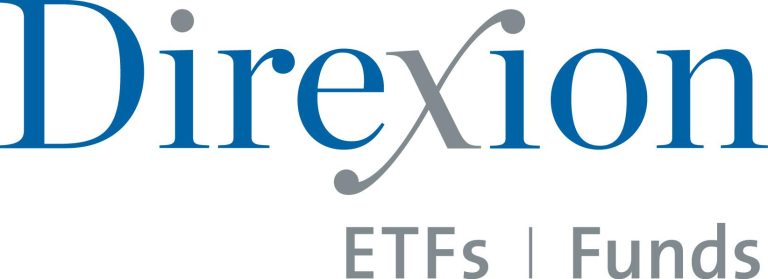
After rushing to file your taxes before the April 15 deadline, the fantasy of living in a world without the Internal Revenue Service (IRS) might feel especially tempting.
It’s certainly on the mind of President Donald Trump, who wants to “abolish the IRS,” according to Commerce Secretary Howard Lutnick.
Don’t miss
- I’m 49 years old and have nothing saved for retirement — what should I do? Don’t panic. Here are 5 of the easiest ways you can catch up (and fast)
- Thanks to Jeff Bezos, you can now become a landlord for as little as $100 — and no, you don’t have to deal with tenants or fix freezers. Here’s how
- Gain potential quarterly income through this $1B private real estate fund — even if you’re not a millionaire. Here’s how to get started with as little as $10
Given this administration’s history of bold and sometimes outlandish ideas — from threaten to use force to invade Greenland to abolishing the Department of Education — their stated goal shouldn’t be dismissed outright.
Here’s how Trump and his allies in Congress are already taking steps to dismantle the national tax agency, and what that could mean for your finances.
Trump’s plan
The Trump administration has already taken tangible steps to disrupt the IRS. According to the Associated Press, the agency has seen three leadership changes in a single week and is expected to lose tens of thousands of employees due to layoffs and voluntary retirement offers.
Abolishing the IRS entirely, however, poses a major challenge: how would the government fund its operations? Trump and Lutnick have proposed that tariffs, collected through a newly formed “External Revenue Agency” could replace the IRS.
“Let all the outsiders pay,” Lutnick said on Fox News.
But the math doesn’t add up. In 2023, the U.S. imported $3.1 trillion worth of goods but collected about $2 trillion in personal and corporate income taxes. According to the Peterson Institute for International Economics, “it is literally impossible for tariffs to fully replace income taxes.”
Republicans in Congress are proposing an alternative plan: replacing income tax with a national sales tax. Representative Earl "Buddy" Carter introduced the FairTax Act of 2025, which calls for a tax-inclusive rate of 23% beginning in the 2027 tax year.
However, the Tax Policy Center estimates that for every dollar spent, this would amount to taxpayers paying about 30 cents in federal sales tax for every dollar spent.
Whether these proposals will ever be fully implemented remains unclear. However, with serious discussions underway about tariffs and consumption taxes — and with the IRS facing significant internal disruption — American consumers should start preparing for the potential fallout.
Read more: Want an extra $1,300,000 when you retire? Dave Ramsey says this 7-step plan ‘works every single time’ to kill debt, get rich in America — and that ‘anyone’ can do it
5 impacts on your finances
Experts say the Trump administration’s attempts to replace income taxes with tariffs or sales taxes could have five impacts on your personal finances.
- 1. Higher Costs: Perhaps the most noticeable impact is on costs. Tariffs and sales taxes raise the price of goods and services. As of April 9, the Yale Budget Lab estimates that the current tariff policies already cost the average household an additional $4,700 per year. Sales taxes are even more visible, showing up as a separate line item on receipts. Under the proposed 23% sales tax, a $30,000 car could cost $36,900.
- ** 2. Regressive Effects:** This shift would disproportionately impact lower-income households. A CEO earning millions may not feel the pinch of a price hike on a new car, but for a working family, that increase represents a significant portion of their annual income. The Peterson Institute’s analysis shows that the cost burden on low- and middle-income households is much greater than on the top 10% or 1% earners.
- 3. Market Volatility: Stock and bond markets could react negatively if the government’s revenue drops and isn’t fully offset by tariffs or sales taxes. A widening deficit could shake confidence and hit retirement portfolios, according to the Yale Budget Lab.
- 4. Risk of Recession: JP Morgan estimates a 60% chance of a recession triggered by an escalation in the trade war. A downturn, combined with rising prices and potential job losses, could mean families face the worst of both worlds: higher costs and lower income.
- 5. Job Losses: As industries react to higher tariffs and reduced consumer spending, layoffs could increase. Households may need to prepare for reduced job security in an already uncertain economic climate.
In light of these risks, it’s wise to revisit your financial plan. Consider expanding your emergency fund and adding a margin of safety to your family’s annual budget.
What to read next
- Don’t have the cash to pay Uncle Sam in 2025? You may already be eligible for a ‘streamlined’ handshake with the IRS — here’s how it works and how it can potentially save you thousands
- Here are 5 ‘must have’ items that Americans (almost) always overpay for — and very quickly regret. How many are hurting you?
- Robert Kiyosaki warns of a ‘Greater Depression’ coming to the US — with millions of Americans going poor. But he says these 2 ‘easy-money’ assets will bring in great wealth. How to get in now
This article provides information only and should not be construed as advice. It is provided without warranty of any kind.


